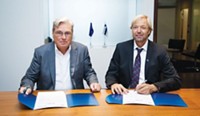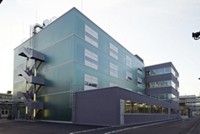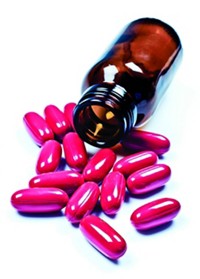Advertisement
Grab your lab coat. Let's get started
Welcome!
Welcome!
Create an account below to get 6 C&EN articles per month, receive newsletters and more - all free.
It seems this is your first time logging in online. Please enter the following information to continue.
As an ACS member you automatically get access to this site. All we need is few more details to create your reading experience.
Not you? Sign in with a different account.
Not you? Sign in with a different account.
ERROR 1
ERROR 1
ERROR 2
ERROR 2
ERROR 2
ERROR 2
ERROR 2
Password and Confirm password must match.
If you have an ACS member number, please enter it here so we can link this account to your membership. (optional)
ERROR 2
ACS values your privacy. By submitting your information, you are gaining access to C&EN and subscribing to our weekly newsletter. We use the information you provide to make your reading experience better, and we will never sell your data to third party members.
Safety
Battle For Europe: API Producers Make Headway In Brussels On Drug Safety Regulations
by Rick Mullin
May 16, 2011
| A version of this story appeared in
Volume 89, Issue 20

For Guy Villax, chief executive officer of Hovione, a Portuguese supplier of active pharmaceutical ingredients, the shock of recognition came at a 2004 meeting of the Active Pharmaceutical Ingredients Committee, a European trade group known as APIC. “I heard somebody say there is no legal requirement to meet current Good Manufacturing Practice standards for APIs in Europe,” he says.
The implications were clear for a firm operating under cGMP, the U.S. Food & Drug Administration’s quality guideline, he says. “It meant that idiots like Hovione are throwing money out the window to reduce patient risk while all kinds of people are exploiting the fact that there are no requirements.” Digging further, Villax learned that European regulatory authorities inspect plants only in Europe. “This kind of dropped on me like a bombshell,” he recalls.
COVER STORY
Battle For Europe: API Producers Make Headway In Brussels On Drug Safety Regulations
Villax joined a battle that was already under way at APIC, where Chris Oldenhof, manager of external regulatory affairs at DSM and currently the group’s president, was leading the push to change the laws in Europe. Oldenhof and Tony Scott, former director of the U.K.’s Chemical Industries Association and adviser to the European Fine Chemicals Group (EFCG), met with the regulators in Brussels to lobby for the cGMP standard and comprehensive inspections—changes that would help level the playing field for firms already meeting the standards.
“The people in Brussels thought these guys were coming from Mars,” Villax recalls. “They said, ‘What are these guys saying? We haven’t seen any problems. We think that the regulatory environment in Europe and regulatory compliance are hunky-dory.’ We couldn’t get anyone in the European Medicines Agency or the commission interested in the red flag we were waving.”
Oldenhof confirms his group’s uphill battle. “In Europe,” he says, “everything is complicated.” Regulatory authority resides with European Union member states. The European Medicines Agency, Oldenhof explains, lacks the central authority of FDA to oversee plant inspections.
API producers managed to score a first victory in 2005, Oldenhof says, when Europe adopted a cGMP standard established by the International Conference on Harmonisation, a coalition of national standard-setting bodies. Earlier this year, the European Parliament issued a more comprehensive directive guarding against the shipment of falsified APIs into its member nations.
Under the Falsified Medicines Directive, which was issued in February, shipments of APIs must include a statement from health authorities in the country of origin that the product was manufactured according to cGMP standards or the equivalent. The directive requires European API manufacturers to register with national health authorities and outlines an auditing regimen for suppliers outside the EU. It also establishes a public database on cGMP certification. The directive is expected to be adopted by member states later this year.
EFCG’s Scott agrees that dealing with European regulators has been a struggle, partly because of the fragmented enforcement structure but also because of the difficulties of explaining the pharmaceutical industry supply chain.
He says EFCG, which was formed in 2004 to promote enforcement of quality standards in the drug industry, has had an easier time dealing with regulators in the U.S. EFCG has worked with its U.S. counterpart, the Society of Chemical Manufacturers & Affiliates, to lobby Congress for enhanced international inspections. Villax testified in hearings before the U.S. Congress in 2006.
“But Europe is listening now,” Scott says. EFCG launched an effort this year to establish cGMP standards for excipients and to certify excipient suppliers.
“I think momentum is building,” Oldenhof says. The key, he says, is establishing joint industry and regulatory oversight of the supply chain. “There is money to be made by falsifying pharmaceuticals,” he says. “And if you have no oversight or deterrence, it will happen. It’s a law of nature.”





Join the conversation
Contact the reporter
Submit a Letter to the Editor for publication
Engage with us on Twitter